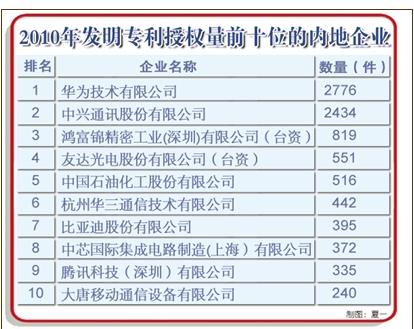 It is said that Ericsson sued the president of ZTE for a few days before he had called on our ministers. At the meeting, he mentioned that he might sue ZTE, and the minister concealed that he hoped to settle in private. Unfortunately, Ericsson still formally filed a lawsuit in a few days.
It is said that Ericsson sued the president of ZTE for a few days before he had called on our ministers. At the meeting, he mentioned that he might sue ZTE, and the minister concealed that he hoped to settle in private. Unfortunately, Ericsson still formally filed a lawsuit in a few days. The minister's approach is correct, because it was done in previous years, and Ericsson is not wrong. Because of the need for benefits, ZTE is even more right, because it is a barrier that must be pursued and even surpassed by competitors.
In fact, whether ZTE infringement is not critical, because the communications industry itself is standard-intensive, from analog to GSM to the current 3G and 4G. The early patents were mostly monopolized by European and American companies such as Ericsson, Nikia, Moto, and so on. The key lies in whether ZTE has enough patents to counterclaim each other in order to achieve cross-authorization with the other party.
The PCT is an important indicator of intellectual property and is an authoritative indicator of the competitiveness of an enterprise's international innovation. According to data released over the years by the official website of the World Intellectual Property Organization, ZTE's annual filing volume and rankings have surpassed for five consecutive years. Since the 2006 PCT ranking for the first time in the PCT entered the global TOP100, it has quickly risen from 52, 38, and 23 to the second place in the world in 2010. Together with Huawei, it has become a leader in Chinese companies. (Huawei ranks fourth in 2010, second in 2009, and first in 2008.) It can be seen that ZTE Corporation does not lack patents, but also has enough capital to compete well with Ericsson in an intellectual property lawsuit.
In 1998, Texas Instruments had sued Samsung for infringing on the patent of Memory. At that time, the court ruled that Samsung compensated TI with nearly 1 billion US dollars. Now that Samsung’s Memory has taken the lead in the world, TI has already withdrawn from the industry. As a latecomer, it surpassed IT in the IT industry. Only one of the methods of the leader is to innovate constantly, lead in technology in innovation, and later take the lead in intellectual property.
According to statistics from the State Intellectual Property Office, the number of invention patents authorized in China reached 815,000 in 2010, an increase of 40% compared with 2009, of which the number of invention patents granted by mainland companies reached 135,000, and enterprises were authorized by patent offices. The share has increased from 24% in 2005 to 53% in 2010. The figures show that the progress of mainland enterprises in the field of intellectual property rights can, on the other hand, only show that the accumulation of intellectual property rights before the mainland was also very weak. The above figure shows the top 10 patents granted by mainland companies in mainland China in 2010. The data shows that Huawei, ZTE and other companies have far ahead of other mainland companies.
The increase in the number of patents in mainland enterprises can only explain the rising awareness of patents and does not mean that they can compete with competitors. As companies become bigger and stronger, there will be more and more intellectual property lawsuits. Since 2008, ZTE has faced The intellectual property disputes have shown an upward trend year by year, which has not prevented the ZTE's performance from rising sharply. The reason for this has been the deep patent resource reserves of these years. In order to build a strong patent asset reserve, ZTE Corporation actively participated in the standardization activities in these years. On the one hand, it invests huge amounts of money each year in multi-level, cross-business field technology development, and expands its own patent reserves through multiple sources and multiple channels. The increase in intellectual property disputes proves the growth of ZTE in these years. And powerful.
Intellectual property disputes are not terrible. Escape will only make the market already lost or about to be lost. It will continue to strengthen its own patent reserves. Actively responding to cross-licensing with rival patents and even prosecuting rivals is the only way for Chinese companies to develop. ZTE does At the time, Huawei was bigger, and other companies in the mainland were still far behind. Although the number of patent licenses increased year by year, most of them were still far from the competitors.
Transformer Cooler Radiator Fan
Vacuum Circuit Breaker Co., Ltd. , http://www.nstransformer.com